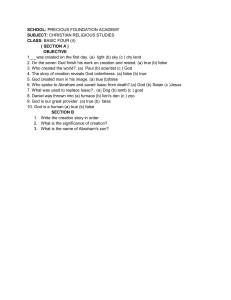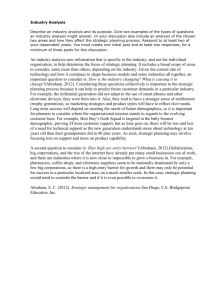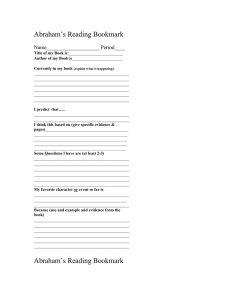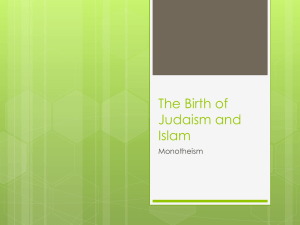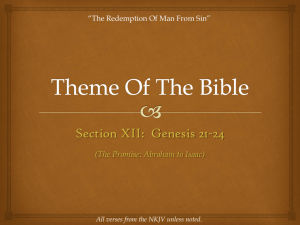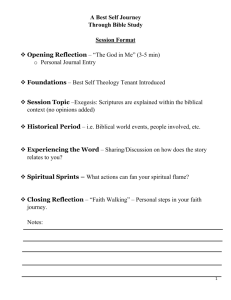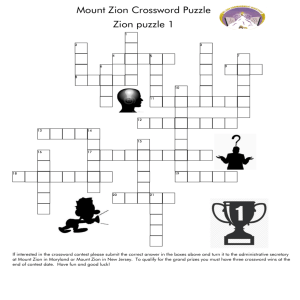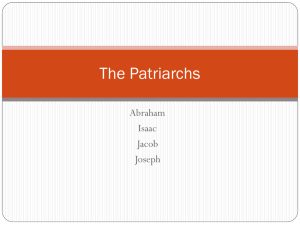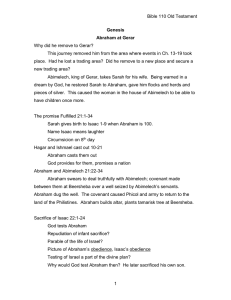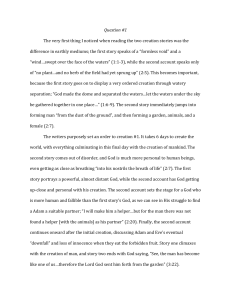The Akedah (the Binding of Isaac)
advertisement
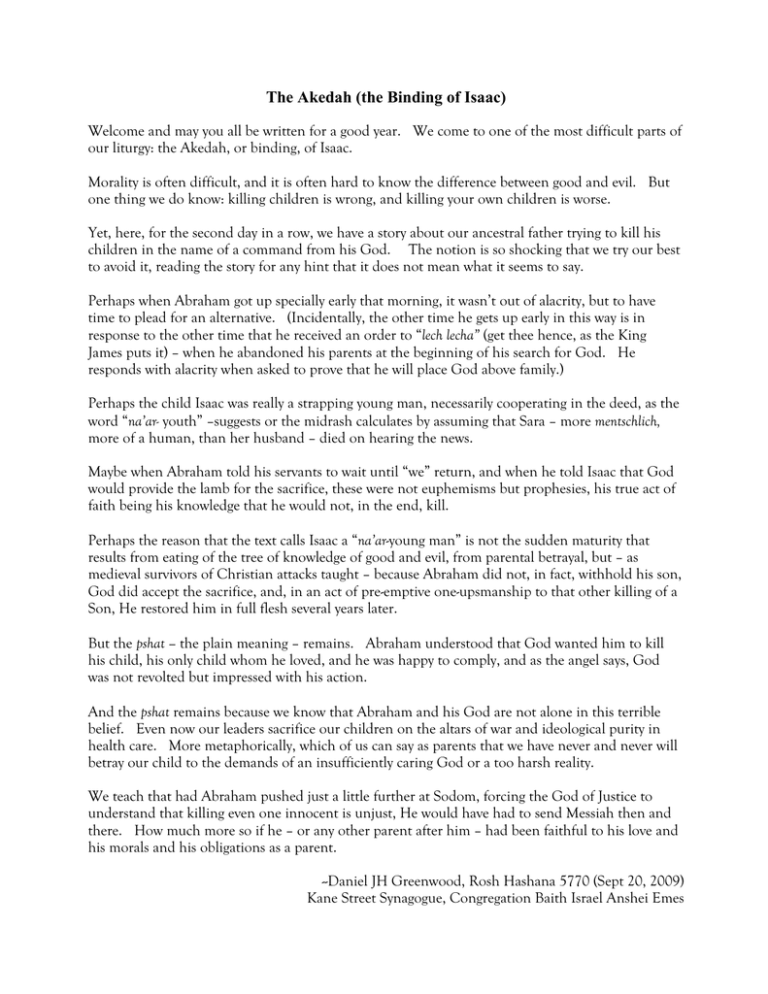
The Akedah (the Binding of Isaac) Welcome and may you all be written for a good year. We come to one of the most difficult parts of our liturgy: the Akedah, or binding, of Isaac. Morality is often difficult, and it is often hard to know the difference between good and evil. But one thing we do know: killing children is wrong, and killing your own children is worse. Yet, here, for the second day in a row, we have a story about our ancestral father trying to kill his children in the name of a command from his God. The notion is so shocking that we try our best to avoid it, reading the story for any hint that it does not mean what it seems to say. Perhaps when Abraham got up specially early that morning, it wasn’t out of alacrity, but to have time to plead for an alternative. (Incidentally, the other time he gets up early in this way is in response to the other time that he received an order to “lech lecha” (get thee hence, as the King James puts it) – when he abandoned his parents at the beginning of his search for God. He responds with alacrity when asked to prove that he will place God above family.) Perhaps the child Isaac was really a strapping young man, necessarily cooperating in the deed, as the word “na’ar- youth” –suggests or the midrash calculates by assuming that Sara – more mentschlich, more of a human, than her husband – died on hearing the news. Maybe when Abraham told his servants to wait until “we” return, and when he told Isaac that God would provide the lamb for the sacrifice, these were not euphemisms but prophesies, his true act of faith being his knowledge that he would not, in the end, kill. Perhaps the reason that the text calls Isaac a “na’ar-young man” is not the sudden maturity that results from eating of the tree of knowledge of good and evil, from parental betrayal, but – as medieval survivors of Christian attacks taught – because Abraham did not, in fact, withhold his son, God did accept the sacrifice, and, in an act of pre-emptive one-upsmanship to that other killing of a Son, He restored him in full flesh several years later. But the pshat – the plain meaning – remains. Abraham understood that God wanted him to kill his child, his only child whom he loved, and he was happy to comply, and as the angel says, God was not revolted but impressed with his action. And the pshat remains because we know that Abraham and his God are not alone in this terrible belief. Even now our leaders sacrifice our children on the altars of war and ideological purity in health care. More metaphorically, which of us can say as parents that we have never and never will betray our child to the demands of an insufficiently caring God or a too harsh reality. We teach that had Abraham pushed just a little further at Sodom, forcing the God of Justice to understand that killing even one innocent is unjust, He would have had to send Messiah then and there. How much more so if he – or any other parent after him – had been faithful to his love and his morals and his obligations as a parent. --Daniel JH Greenwood, Rosh Hashana 5770 (Sept 20, 2009) Kane Street Synagogue, Congregation Baith Israel Anshei Emes
